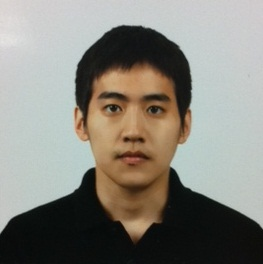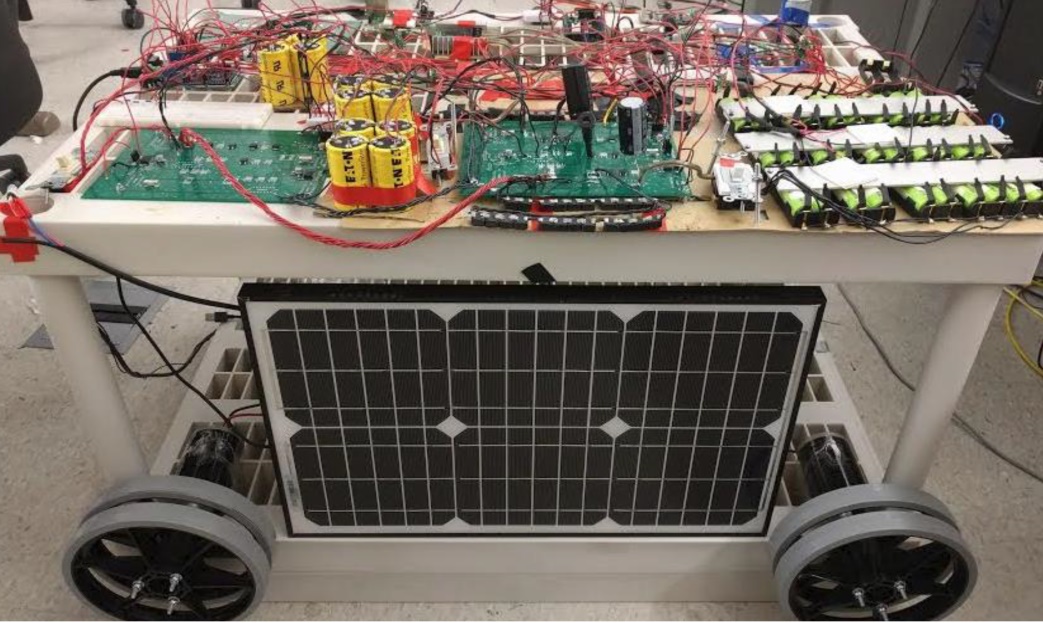
2260 Hayward Street Ann Arbor, MI, 48109
Office: 4944 BBB
kimsun (_at_) umich (_dot_) edu
 |
Advisor : Prof. Kang G. Shin
2260 Hayward Street Ann Arbor, MI, 48109 Office: 4944 BBB kimsun (_at_) umich (_dot_) edu |
|---|
My current research focuses on the creation of more effective energy storage and battery management system (BMS) software and hardware architecture. Within my research, I have developed several software algorithms and a hardware prototype across all layers to optimize performance and lifetime.
|
|---|

To validate the proposed approaches, we built a prototype
consisting of battery centric HESS and several sub-devices as
seen in the figure. NXP iMX6 board is used as our master board,
and manages all sub-devices in the prototype. It schedules
requested operations, actuates the sub-devices and monitors
system states. It communicates with other devices through its
own CAN driver. Local Arduino controllers need CAN bus
shield to communicate with other boards. Each controller has
its own CAN ID to identify the messages’ senders and receivers.
Master board sends messages having receivers ID and
control variables, and local controllers should send messages to
inform their states. Whenever the master controller recognizes
serious situations such as excessive chip temperature or battery
malfunction, it has to take proper actions for system safety.
For device operations, we used three wheel motors which
have 18W of maximum power, one auxiliary motor which has
5W of maximum power, and one stepper motor whose max
power is 5W. A local controller needs motor drivers to regulate
speed or position of the motors. Also, our motor drivers
are equipped with a regenerative braking system which can
generate power when the system decelerates. Master control
board and battery temperature is controlled by thermal fins
with heat spreaders. We used thermo-electric coolers (TEC) as
the thermal fins for batteries and the master controller. Local
controller determines thermal fins temperature and regulate
control input (voltage level) of the TEC fins achieving the
target temperature. We programmed two thermal applications
for the master board’s temperature and battery temperature. We
used one thermal fin for master board temperature with 3W
maximum power, and we used three thermal fins for batteries
with 10W maximum power.
We deployed two solar panels on the prototype. One
solar panel can generate 10W, and the other 25W at sunny
day. However, its performance dropped largely at cloudy. We
assumed the minimum power rate would be 1W for the small
panel and 2W for the large one at our application environment.
We used ultra capacitor pack for the energy buffer. Each ultra
capacitor has 400F capacitance, 2.7 V of rated-voltage and
26 A of rated-current. Therefore, it can store 1458 J and 70
W of maximum power. We have 30 lithium-ion batteries that
have 1400mAH (18,600 J) of energy capacity and 7.4W of
power capability. We have to determine the number of battery
cells to guarantee power capability for the power demand
operations. We designed switched mode DC/DC converter to
move energy between the UCs and battery cells. The converter
is designed to be capable of moving current up to 20A at 30V.
The converter controller must be cautious because surges of
recharging current can damage the batteries.
Offline Guarantee and Online Management of Power Demand and Supply in Cyber Physical Systems pdf
Eugene Kim, Jinkyu Lee, Liang He, Youngmoon Lee and Kang G. Shin
Proceedings of The 36th IEEE Real-Time System Symposium (RTSS 2015), Porto, Portugal, December, 2016 (to be appeared)
Resting Weak Cells to Improve Battery Packs Capacity Delivery via Reconfiguration
Liang He, Eugene Kim and Kang G. Shin
7th ACM International Conference on Future Energy Systems (e-Energy), 2016 (to be appeared)
*-Aware Charging of Lithium-ion Battery Cells, ACM/IEEE 7th International Conference on Cyber-Physical Systems (ICCPS’16)
Liang He, Eugene Kim and Kang G. Shin
Vienna, Austria, April 2016
Modeling and Real-time Scheduling of Large-Scale Batteries for Maximizing Performance pdf
Eugene Kim, Jinkyu Lee and Kang G. Shin
Proceedings of The 36th IEEE Real-Time System Symposium (RTSS 2015), San Antonio, Texas, USA, December 2015
Real-Time Discharge/Charge Rate Management for Hybrid Energy Storage in Electric Vehicles pdf
Eugene Kim, Jinkyu Lee and Kang G. Shin
Proceedings of The 35th IEEE Real-Time System Symposium (RTSS 2014), Rome, Italy, December 2014
Real-Time Battery Thermal Management for Electric Vehicles pdf
Eugene Kim, Jinkyu Lee and Kang G. Shin
ACM/IEEE 5th International Conference on Cyber-Physical Systems (ICCPS’14) April 14-17, 2014, Berlin, Germany
Design and Management of Satellite Power Systems pdf
Jinkyu Lee, Eugene Kim and Kang G. Shin
Proceedings of The 34th IEEE Real-Time Systems Symposium (RTSS 2013) , Vancouver, Canada, December 2013
Real-Time Prediction of Battery Power Requirements for Electric Vehicles pdf
Eugene Kim, Jinkyu Lee and Kang G. Shin
ACM/IEEE 4th International Conference on Cyber-Physical Systems (ICCPS’13) April 8-11, 2013, Philadelphia, PA, USA